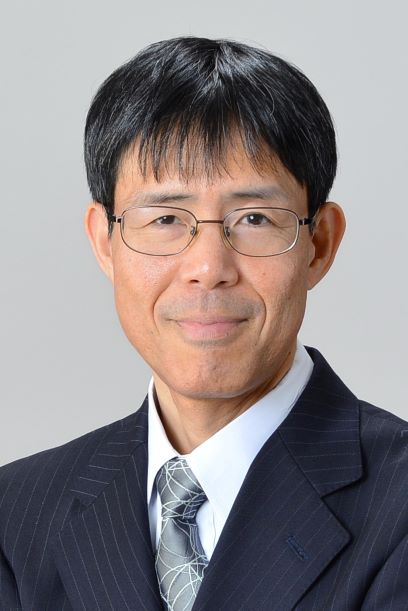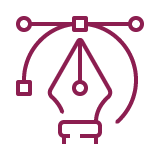ようこそ人文学類へ
筑波大学の学群とは学部学生に教育を行う組織で、専門領域を中心にいくつかの学問分野を総合した形で構成されます。学類とは学群のなかで学生の教育に責任を持つ組織です。
学類長ごあいさつ

人文学類では、人文系の学問分野の中でも特に、哲学、歴史学、考古学、民俗学、言語学といった領域を深く学ぶことができます。人文学類生は哲学主専攻、史学主専攻、考古学・民俗学主専攻、言語学主専攻の4つの主専攻の何れかに属し、卒業論文の作成に向けて、専門性の高い勉強をすることが求められます。
卒業論文を完成させる過程では、過去の研究者の研究手法を手本とし、それをなぞり、模倣することで、研究とはどういうものかを体感・体験することになります。そうすることで得られるのは、それぞれの分野に固有の専門的概念や専門的知識だけではありません。何事に対しても論理的に思考し、自分で答えを導きだせるようになる知性です。これは自分の日々の営みをとても豊かなものにしてくれます。文科系であろうと、理科系であろうと、体育・芸術系であろうと、大学で学ぶということは、この知性を養うことだと私は考えています。
学問とは、表面的には見えないものを可視化すること、日常的には意識しないものを意識化することだといえます。例えば、重力は直接目には見えません。また、そういうものがあるなど、普通に生活していく中では意識することもありません。しかし、それには実在性があるわけです。表面的には見えないものを見ることや無意識的なものを意識することは大変難しいことです。一歩下がって、そして、客観視する対象として、物事を見つめなければならないからです。この抽象的な思考能力が知性の源です。
先にも述べましたが、人文学類で扱う研究領域は、哲学や史学、考古学、民俗学、そして、言語学です。これらに共通するのは、人間の思考や営みに関係するということです。つまり、人文学類では、私たち人間が、私たち人間について、一歩下がって表面的には見えない真実を探求します。「人間」はあまりにも私たちにとって近過ぎます。また、当然すぎる存在です。そういうものを学問の対象とすることはとても難しく挑戦的で、だからこそ、魅力的だともいえます。人文学類でぜひチャレンジングな問いに挑んでみてください。
人文学類長 島田 雅晴
人文学類の教育目標
「筑波スタンダード」(人文・文化学群人文学類)
「筑波スタンダード」とは、建学の理念を踏まえて、学士課程における教育の目標とその達成方法及び教育内容の改善の方策を含む教育の枠組みを明らかにし、学位の質の保証と持続的向上を目指す本学の教育宣言として広く社会に公表するものです。人文学類のスタンダードについては、上記のリンクからPDF版を参照できます。
以下は、そこから抜粋して整理したものです。
人材養成目的
「人間とは何か」という問いを根底におき、人間存在とその諸活動の所産としての文化全般について主体的に考察しうるとともに、グローバル化が進展する世界における諸問題に積極的に関与し発言しうる、真に教養ある人材を養成します。
学位授与の方針
筑波大学学士課程の教育目標及び本学群・学類の人材養成目的に基づき、学修の成果が次の到達目標に達したと認められる者に、学士(人文学)の学位を授与します。
-
 専門的能力
人文系の諸学問分野に関する専門的知識と固有の方法論とを習得し、それに基づいて自らの取り組む問題に関する文献や原資料を調査・収集・分析することを通して、実証的に自らの考えを構築し普段に更新していくことができる。
専門的能力
人文系の諸学問分野に関する専門的知識と固有の方法論とを習得し、それに基づいて自らの取り組む問題に関する文献や原資料を調査・収集・分析することを通して、実証的に自らの考えを構築し普段に更新していくことができる。
-
 コミュニケーション能力
外国語やコンピュータを的確に駆使しながら、他者に自らの考えを論理的に伝達するとともに、他者の考えを十分に理解し、対話を通じて相互に了解可能な共通認識に到達することができる。
コミュニケーション能力
外国語やコンピュータを的確に駆使しながら、他者に自らの考えを論理的に伝達するとともに、他者の考えを十分に理解し、対話を通じて相互に了解可能な共通認識に到達することができる。
-
 想像力
「人間とは何か」という問いに根ざして知性と感性を磨き、人間存在とその諸活動の所産としての文化全般に鋭い考察を加え、現代世界の諸課題の発見と解決に果敢に挑戦し、人類の未来へとまなざしを向けることができる。
想像力
「人間とは何か」という問いに根ざして知性と感性を磨き、人間存在とその諸活動の所産としての文化全般に鋭い考察を加え、現代世界の諸課題の発見と解決に果敢に挑戦し、人類の未来へとまなざしを向けることができる。
教育の質の保証と改善の方策
- 定期的な試験・レボートと授業アンケートの実施により、教育目標の達成度について教員と学生が双方向に評価し、教育力を向上するよう努めています。
- クラス連絡会を通じて学生・教貝間の意見交換を行うことにより、教育の質の持続的改善を図るシステムを確立しています。
- 1 ・2年生のために、演習公開や専攻説明会を実施し、 3年次での主専攻・コースヘの進級が円滑に進むようサボートしています。
- 1人の教員が1年次から4年次までを通して担当するクラス担任制と並行して、3年次以降は、11コース毎にクラス担任が設けられており、コースのクラス担任が専攻に即した履修指導を行っています。
- 演習授業や卒業論文指導では、少人数の学生を対象に、個々の学修の進展状況を十分に把握し、それに応じたきめ細かい指導を行っています。
- 実習授業では、報告書を作成するなどして成果を地域社会へ遥元し、その評価を授業の改善に生かすことに努めています。
Welcome to the College of Humanities
Schools(Gakugun) at the University of Tsukuba are designed to provide an education to undergraduates and consist of several academic disciplines centered on an area of specialization. Colleges are organizations within the wider Schools that are responsible for student education.
Greetings from the Dean

Humanities, from which stems our name College of Humanity, is the study of who we are; that is, what it means to be human. However, I personally feel that the word “human” is too familiar and somehow vague. As we all know, biologically speaking, humans are known as Homo sapiens. As the 20th century drew to a close, genetic analysis and other technologies dramatically improved, making it possible to trace the history of Homo sapiens with a certain degree of accuracy. This species was born in Africa roughly 200,000 years ago and spread to other parts of the world about 60,000 years ago, meeting older species of humans and eventually replacing them to become the only species of human on the planet.
What would happen if we replaced the word “human” in humanities with “Homo sapiens”? This is not mere wordplay; new perspectives have emerged through comparing Homo sapiens with other human species that once existed on Earth and with modern apes. This has also led us to look at ourselves from a more objective point of view. We Homo sapiens speak in languages, believe in supernatural beings, and have built society with a focus on morals and cooperating with one another. When did we acquire these abilities, what are the characteristics of these abilities and behaviors, and what kinds of societies and cultures have we built so far? These are the topics that Humanities looks to explore.
The College of Humanities has four deeply interrelated courses that focus on the abilities, history, and culture of Homo sapiens: Philosophy, History, Archaeology and Folklore, and Linguistics. While it is of course important for students to master their respective specialties, I believe it is even more important to be aware that what you are undertaking the study of Homo sapiens. Come join us in the College of Humanities and study this strange creature called Homo sapiens.
Masaharu Shimada, Dean of the College of Humanities
College of Humanities: Educational Objectives
"Tsukuba Standard" (College of Humanities, School of Human and Cultural Studies) *PDF in Japanese
Based on the University's founding philosophy, the “Tsukuba Standard” elucidates our educational framework, such as the educational objectives in our bachelor’s programs and measures to achieve and improve them, and is announced widely to the general public as the educational declaration of the University, which strives to guarantee and improve the quality of our academic degrees. Please see the PDF link above for the Standards for the College of Humanities.
The following is an excerpt.
Purpose of Human Resource Development
We foster truly cultured human resources capable of autonomously exploring human existence and culture as a product of human activity based on the question “What is a human being?”, who can engage proactively in an increasingly globalizing world and speak out on a variety of issues.
Policy for Awarding Degrees
Bachelor’s degrees in Humanities are awarded to students who, in accordance with the educational goals of the University of Tsukuba’s bachelor’s degree program and the human resource development goals of the school and college, have achieved the following goals.
-
 Professional Ability
Has acquired specialized knowledge and methodologies required in the disciplines of humanities and is able to empirically construct and renew their own thoughts and ideas through the research, collection, and analysis of literature and source materials relevant to the issue they are working on.
Professional Ability
Has acquired specialized knowledge and methodologies required in the disciplines of humanities and is able to empirically construct and renew their own thoughts and ideas through the research, collection, and analysis of literature and source materials relevant to the issue they are working on.
-
 Communication Ability
Is able to communicate their own thoughts logically to others, fully understand the ideas of others, and reach mutual understanding through dialogue, while also making full use of foreign language and computers.
Communication Ability
Is able to communicate their own thoughts logically to others, fully understand the ideas of others, and reach mutual understanding through dialogue, while also making full use of foreign language and computers.
-
 Imaginative Ability
To be able to improve intellect and sensibilities based on the question “What is a human being?” and give keen consideration to human existence and culture as a product of human activity, as well as boldly take on the challenge of finding and solving problems of the modern world and look toward the future of humanity.
Imaginative Ability
To be able to improve intellect and sensibilities based on the question “What is a human being?” and give keen consideration to human existence and culture as a product of human activity, as well as boldly take on the challenge of finding and solving problems of the modern world and look toward the future of humanity.
Measures to Guarantee and Improve the Quality of Our Education
- We strive to improve the quality of our education through regular testing, reports, and class surveys, which allow students and faculty to assess each other interactively on how well they have achieved educational goals.
- Systems have been established to continually improve the quality of education through exchange of opinions between students and faculty at class liaison meetings.
- We host seminars and explanation sessions on majors for first and second year students to ensure smooth progression toward a major or course in the third year onward.
- Along with a homeroom system, in which one faculty member is responsible for a class from first year all the way to fourth, there is a homeroom teacher for each of the 11 courses from the third year onward, providing guidance in accordance with to the course.
- In seminar and graduation thesis seminars, meticulous guidance is provided to small groups of students based on an understanding of individual learning progress.
- In practicums, results are presented to the local community in reports, and assessments of these are used to improve classes.